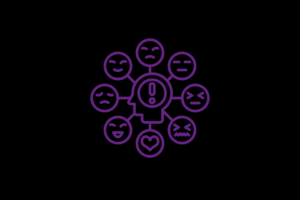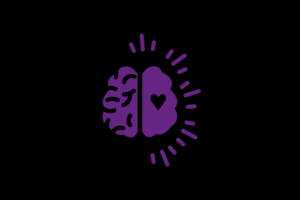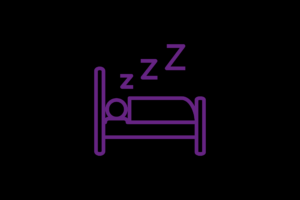Research shows that autistic people’s brains tend to have higher processing power than non-autistic brains, but this may not always show as we often have a lot more to process compared to others. This actually means it can be quite easy for us to run out of ‘mental energy’ during the day. When this happens, things can become a lot harder to do. This is your body’s way of saying it needs a break.
To understand this, think of your energy levels like a battery. When you are out of energy, you may feel like your “battery” has died and you need time to recharge.
It can be really helpful to learn how to manage your mental energy to do all the activities you need to/ want to do during the day.
This includes:
- Knowing what “drains your battery”
- Knowing what “saves your battery”
- Knowing what “recharges your battery”
Battery drainers
Socialising
Spending time with people can be great but it can also be exhausting. Especially if you aren’t comfortable being your natural self around them.
Sensory input
Sounds, sights, smells, taste and movement can all use up your battery. A very bright and loud space will use your battery much quicker than somewhere that is a more quiet, relaxed space.
Demands
Expectations and demands use up battery. Even just thinking about demands takes energy, even if you do not do what is expected.
Activities
The more you do in the day, the more your battery will be drained. The amount of battery an activity takes also depends on how much “brain power” the activity takes.
If there is lots of rushing around and tight timings this can also reduce your battery quicker.
Thoughts
If there is something you are worried about or you are feeling stressed, this can use a lot of battery!
Each individual is different and has different things that drain their battery. Some things that are drainers for one person, might charge energy for another.
One person’s drainers may be:
Small amount
- Being asked how your day was
- Brushing your teeth
- Getting dressed
Medium amount
- Cooking a meal
- Having a shower or bath
- Being in a noisy environment
- Being in a bright environment
Large amount
- Lack of sleep
- School
- A hot day
- Pain
- Medical appointment
- Reaching out to a friend
Battery savers
There are some things that can “save your battery”. They can stop your energy from draining as quickly by:
- Helping you to be more calm/ relaxed, so your brain feels less busy
- Reducing the amount of drainers you are doing
- Being a distraction from any worries/ upset (as thinking can drain your energy too).
Things that may save energy for one person, may be drainers for another. Each activity will also take or save different amounts of energy depending on the person.
If your energy level is too low, you may not be able to do some of the things that are savers.
One person’s battery savers might be:
- Walking
- Reading
- Painting
- Gaming
- Solitude
- Wearing noise cancelling headphones
- Running
- Listening to music
- Time with a special interest
- Accomplishing a small task
- Cooking & eating a proper meal- this depends on the person, for some it’s methodical/ beneficial and others it drains the battery
- Cancelling plans, prioritising yourself and only doing what is achievable
Battery chargers
The best way to recharge your energy is through rest. The main way is through sleep, but sleep is more difficult when you are low on energy! Having a lie down, having a nap or doing anything that requires no thinking/ effort recharges your battery. This could include lying down and watching light-hearted YouTube videos.
Managing your energy
When energy levels get too low, meltdowns are more likely to happen as you are more stressed and have little emotional energy left to manage things. When an activity or several activities drain your battery, it is important to put time aside to recharge it to prevent your battery draining completely.
“When I was at school, it took all of my energy to try and fit in, which meant I had nothing left when I got home. If my mum asked me how my day was, I couldn’t answer and it could make me have a huge meltdown. This wasn’t her fault, it was because I didn’t have any energy left. I also never had meltdowns at school, I kept them inside until I got home because home is my safe place” – Andy, Autistic adult
People start each day with a different amount of battery. So sometimes, it may be really hard to do certain things that you find easy to do on other days. Battery level can be affected by things such as amount of sleep, how much you were able to recharge the night before and the amount of worries you have.
We need to prioritise using our energy on our most important things and recharge often. If we fail to recharge in time or if we do something that takes an enormous toll, we might CRASH. It’s like having a flat mobile phone, there is nothing we can do until we have recharged, no matter how much we want or need to. This is known as autistic burnout.
Knowing how to manage your battery levels is a really helpful skill. We recommend speaking to a trusted person to ask if you can make a plan around this, plus looking at some of the resources we have linked below.
Some top tips for managing your brain energy:
- If you wake up on a day with low energy, this is OK. Try not to feel guilty about this and instead do what you need to recover. It can be incredibly frustrating when you have exciting plans and they no longer feel possible. But it is important to recognise this is your body telling you you need a break so you can get back on track.
- Can you take time to learn about your sensory needs and support that is helpful for these?
- Make sure you have regular time to do things you enjoy
- Work out how much recovery time you need on a typical week, can you incorporate recovery time into your routine?
- Have firm boundaries with other people to avoid overwhelm
- Recognise it is OK to say ‘no’ if there is something you don’t want to/ feel able to do
- Try and connect with other autistic people
- See what you can do to improve your sleep
- Try to find places where you can be yourself, rather than where you feel you have to mask to try and fit in
- Can you incorporate calming activities into your day, every day?
- Communicate in ways that work for you. If speaking is difficult sometimes, you may prefer to write or text.
- Overall, can you make changes to your lifestyle to reduce things that reduce your battery, and do more things that make you feel happier and more regulated?



